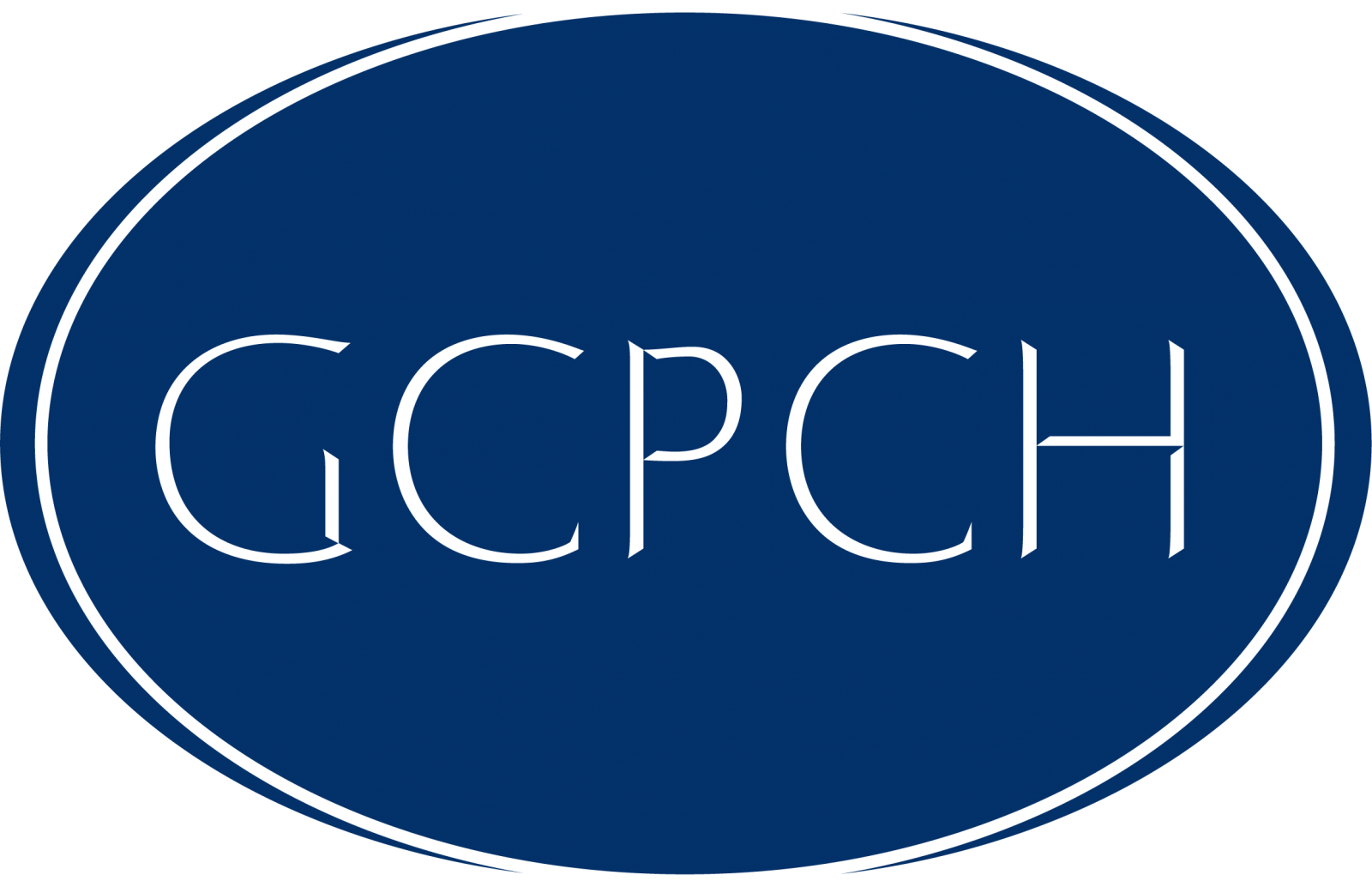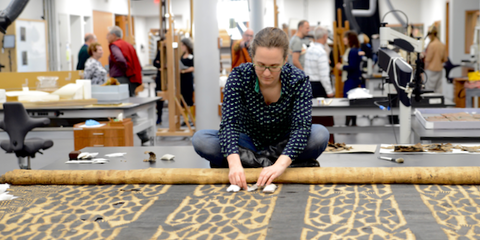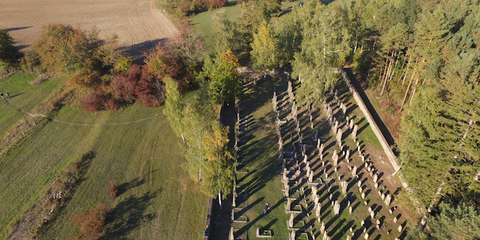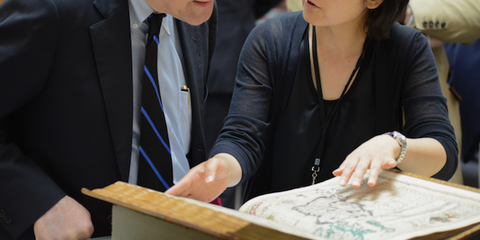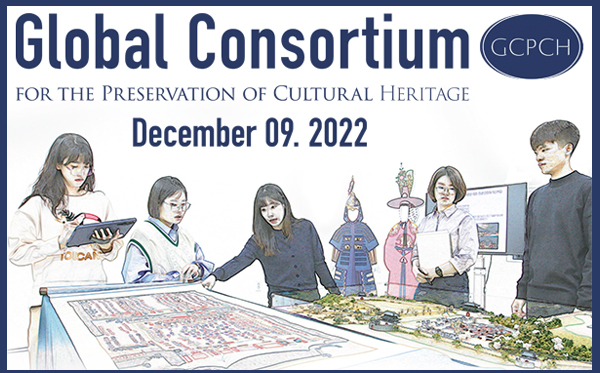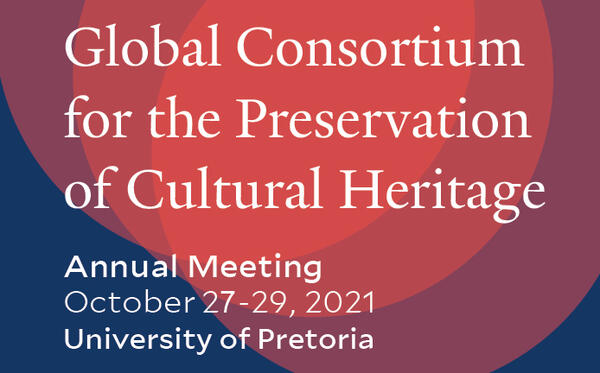Our Mission
The preservation of cultural heritage is one of the grand challenges of the contemporary world. The goal of the consortium is to enable the global university, education, and research community to make a transformative contribution to the preservation of cultural heritage, through broad educational programs, major collaborative research initiatives, and effective engagement and advocacy.
Previous Events Archive
View details (PDF) or visit the event website to Register Now
University of Pretoria was honored to host the Fourth Annual Meeting of the Global Consortium for the Preservation of Cultural Heritage in October 2021. As the first meeting on African soil, UP injected some of its unique perspectives into the global conversation.
For us it is important to narrow the discussion to some specific topics and try to emerge from the meeting with some definite resolutions and action plans.
The Global Consortium for the Preservation of Cultural Heritage (GCPCH) is a network of universities, museums and research institutes premised on the understanding that the preservation of cultural heritage is one of the grand challenges of the 21st century. By creating a space for conversation, knowledge exchange, and project incubation, members from across disciplines, geographies, and socio-political contexts engage in a collaborative strategy to strengthen education and training, research, and advocacy for cultural heritage, broadly conceived. The Consortium maximizes the collective opportunity to make a global impact in the preservation of cultural heritage. GCPCH does not seek to replicate the outstanding work of formal agencies and NGO’s dedicated to this work across a multitude of specialized disciplines and practices; on the contrary – the network functions as a global amplifier for regional or national efforts, and a pathway by which diverse expertise can connect and spark innovation.
The network is coordinated by a steering committee, and new members are welcome to its monthly online meetings at any time. The annual GCPCH meetings are hosted once a year, on a rotating basis, with the intention of spotlighting cultural leadership in different countries or regions, while also acknowledging broader global contexts.
Cultural heritage is constantly in flux, revised and created on a daily basis as humans represent their world and experiences through making across time and space. As such, art in any form is a uniquely powerful tool in capturing the spirit of a time, it expresses human aspirations, it empowers civic expression, archives and comments on events surrounding the creator and it speaks to a brighter future. Cultural heritage however does not belong only to professional makers, nor does it live only in galleries and museums. Rather, creative expression lives within and around us all and makes visible histories, belief systems, values, traditions, and lifestyles. Artists in search of new creative forms of all kinds have sought inspiration from cultural heritage. Whether incorporating ancient motifs in a new building design, writing a new poem about a heritage site, or riffing off a fairy tale to plot a new play, cultural heritage fuels creativity, and in so doing, there is a certain preservation of the past for the present… and the future.
Global Consortium Steering Committee
|
Anupam Sah |
CSMVS Mumbai |
|
Stefan Simon |
Rathgen-Forschungslabor |
|
Krassimira Frangova |
Royal Danish Academy for Fine Arts |
|
Ivan Selin |
Smithsonian and Yale |
|
Michael Mason |
Smithsonian Institution |
|
Kristine Juncker |
Smithsonian Institution |
|
Christine Kreamer |
Smithsonian Institution |
|
Dana Moffett |
Smithsonian Institution |
|
Florian Knothe |
The University of Hong Kong |
|
Karin Weil |
Universidad Austral de Chile |
|
Mary Cassar |
University College, London |
|
Maartje Stols-Witlox |
University of Amsterdam |
|
Susan Keitumetse |
University of Botswana |
|
Maggi Loubser |
University of Pretoria (chair) |
|
Alexander Johnson |
University of Pretoria (director 2021 meeting) |
|
Isabelle McGinn |
University of Pretoria |
|
Marinda Maree |
University of Pretoria |
|
Tor Broström |
Uppsala Universität |
|
Alison Gilchrest |
Yale University |
|
Denise Lim |
Yale University |
